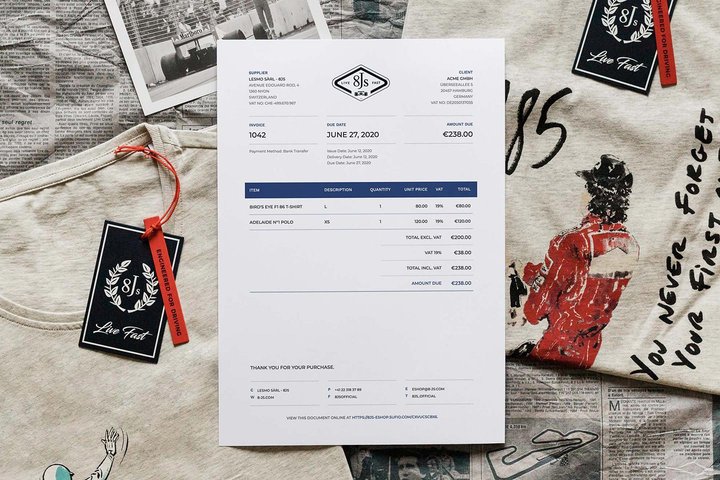Choosing Where to Base Your Startup: 7 Key Factors

Choosing a country for your business is an important decision for any entrepreneur.
You might think the rise of remote working and the ‘digital nomad’ phenomenon mean physical location no longer matters.
Certainly, most startups no longer need to be based in a major business hub. But by the same token, many entrepreneurs who previously couldn't have relocated can now do so, and to a far greater range of countries.
Location still matters, just in a different way.
The choice of where to base your business is one you must make carefully—sadly, it’s not as simple as picking up your laptop and jetting off to the most spectacular beach you can find.
We’ve put together a list of the seven most important factors you need to consider when deciding where to base your business.
Banking and payment processing

When it comes to banking, some highly developed economies fall surprisingly short in terms of how safe your money will be in their banks and the ease with which you can carry out transactions.
The US is a good example of this. Banking in the US still relies on cheques to a surprising degree, which will seem very cumbersome and old-fashioned to many.
What’s more, when it comes to the security of national banking systems, World Economic Forum research indicates that the US and UK lag behind some countries that have a lower GDP per capita, including the Czech Republic, Malta, and Slovakia.
Your startup will likely need to use one or several of the big payment processors like PayPal and Stripe in the country you are based in; however, these companies now operate in an increasingly wide variety of countries and currencies.
It is best not to assume, then, that the world’s leading economies always offer the best in terms of banking and payment processing.
Paperwork
The hassle involved in complying with bureaucracy such as tax reporting, business licenses, and operating agreements can vary considerably from country to country.
Unsurprisingly, the wealthiest countries tend to score the best when it comes to transparent government practices, strong property rights, and a lack of bureaucracy for businesses. After all, these qualities are a big part of why their economies grew so large in the first place.
However, some developing countries have made great strides in reducing the number of administrative hoops you'll need to jump through.
If you look at the US News rankings of countries most open for business, while Switzerland predominates, middle-income Malaysia is ranked above the likes of the UK and the US.
Living and operational costs

Living and operational costs are where developing countries naturally offer an advantage over their richer peers.
In developing countries, certain business costs, such as renting warehousing space and paying wages, will be considerably lower.
Assuming you intend to live in the country where you've based your business, the income that you generate will likely go much further if you choose one with an affordable cost of living.
Of course, living expenses will be the only relevant cost factor if you’re running a business that is 100% online—as many Shopify stores are.
Visas and work permits
Many countries offer favorable visa policies to attract companies to move there. For example, Estonia offers an e-Residency program that makes it easy for online entrepreneurs to work remotely from Estonia or set up a business there (although it does not automatically entail tax residency).
On the other side of the coin, some countries that are generally very hospitable for startups may not have visa policies that suit you. For example, Singapore is a hub for online businesses, but it requires registered companies to pay the cost of having a resident local director.
Some countries also have local office requirements that may require you to lease out a minimum amount of office space, which in the case of a solopreneur could be much more than is actually needed.
Reputation

It is vital to consider how the location of your business will be perceived by everyone, from potential customers to investors.
While few are likely to want to register a business in a failed state or a country with notoriously bad business practices, a more common pitfall is basing yourself in an offshore tax haven.
The reputational risk may well outweigh the financial benefits this offers. With scandals such as the Panama Papers or the recent Credit Suisse leak never far out in the news, people are increasingly wary of anything with the potential whiff of money laundering, fraud, or tax evasion.
Ease of shipping
Any ecommerce startup will need to think carefully before deciding to be registered somewhere like New Zealand or Australia. While these countries have a business-friendly environment, shipping from Oceania to Europe will be very costly.

Some ecommerce entrepreneurs are opting for the dropshipping business model, where their product is shipped directly from a third-party manufacturer to their customers. Among other advantages, dropshipping allows them to be much more flexible when choosing where to base their business.
However, other ecommerce businesses prefer to manage their inventory before it is shipped to customers, as this allows them to check product quality and manage shipping delays more easily. If this sounds like you, distant warehouses might not be ideal.
Tax
Last but not least, considering how much tax you and your business will need to pay is vital.
The Tax Foundation’s International Tax Competitiveness Index 2021 ranks the likes of the Baltic states and Switzerland as optimal for various forms of taxation.
However, it is impossible to make recommendations without considering individual circumstances in terms of income and the size of the business. Always consult a relevant tax expert for personalized advice on your tax obligations in a particular country.
Another important consideration aside from taxation rates is whether you will be able to obtain tax residency in your country of choice to be exempt from also owing tax in your home country or last place of residence. No one wants to pay tax in two different jurisdictions!
You also need to make sure that your business is compliant with consumer taxes, which vary from country to country.
Invoicing is where Sufio comes in. Our app allows you to automatically generate documents that are compliant with tax legislation in over 50 countries!

We partner with local accountants to allow you to easily invoice international customers without having to worry about miscalculating taxes.
If you want to see how Sufio’s automated and fully-compliant invoicing works in practice, head over to the Shopify app store and sign up for our 14-day free trial.
Professional invoices for Shopify stores
Let Sufio automatically create and send beautiful invoices for every order in your store.
Install Sufio - Automatic Invoices from the Shopify App Store